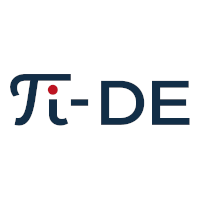TIDE – Template-Designed Organic Electronics
TIDE is a DFG-funded Research Training Group providing a comprehensive doctoral education program in the field of Organic Electronics to meet the requirements of highly qualified and multidisciplinary professionals in academia and industry. Our team of more than 13 expert researchers strengthens TIDE in terms of breadth, complexity and interdisciplinarity coming from different disciplines like Physical, Organic, and Theoretical Chemistry, as well as Physics and Materials Science, and is located at at the two universities University of Cologne, and University Bonn.
You will find more information about the research and the education program of TIDE on the following pages.
Our Vision: 1D templates impact on ordering of molecular building blocks and on charge transport.
Doctoral projects
Our three-years doctoral projects are related to the central scientific questions in the TIDE project:
How does structural order influence optoelectronic properties of pi-conjugated materials?
How can these properties be improved by templates to optimize devices?
Worldwide, OE devices such as OLEDs have already revolutionized the field of electronics. Technological progress has been largely made by empirical research and development, while fundamental knowledge is often still incomplete.
TIDE aims to exploit correlations between increased structural order and reduced defect densities, as well as more favorable optical and transport properties to achieve a beneficial impact on optoelectronic devices.
Mandatory to success is the close interaction between complementary research areas such as chemical synthesis, surface sciences, spectroscopic physical characterization, device fabrication, as well as theory and modeling. Considering the breadth of the TIDE research topic, we have devised five synergistic Focus Areas:
- A – Synthesis of pi-conjugated building blocks
- B – Synthesis of surface-active templates
- C – Spectroscopy to investigate surfaces and interfaces
- D – Testing in optoelectronic devices
- E – Theory & modelling of templating processes
Our network of internationally recognized scientists will offer the participating doctoral candidates a unique research environment. On top, the three-months research residence abroad is a key element to enlarge the individual international network.
Training Program
The research projects are complemented with a training program. TIDEs qualification program will deepen the scientific knowledge about important aspects in Chemistry, Physics, and Material Sciences with its jointly taught lecture series. The certified Bench-to-Business training (B2B) provides the mind-set needed to bridge the gap between basic research at the university and applied research in future job situations. The program is complemented by further scientific and key skills trainings.
Support Structure
TIDE is organized in a cohort system with a comprehensive support structure, allowing a smooth and structured PhD phase with maximum time for the research project and simultaneously paving the way for a successful career in academia and industry.
